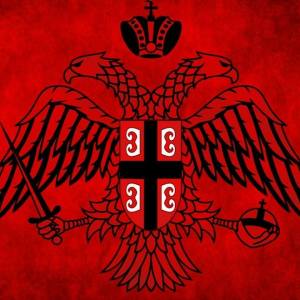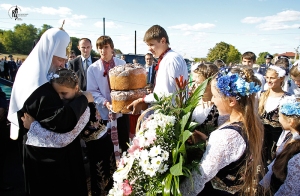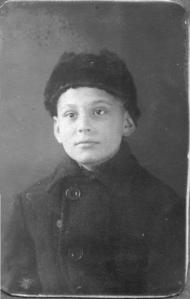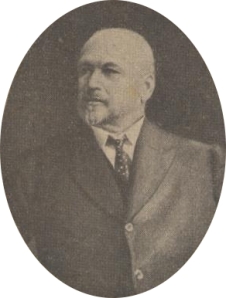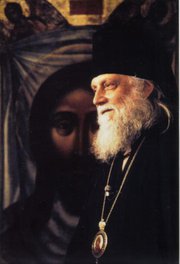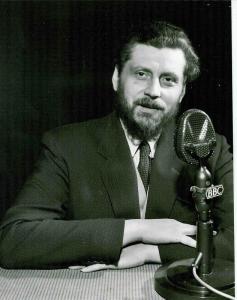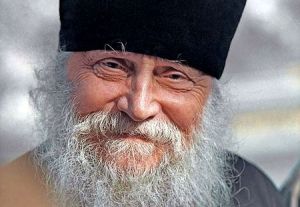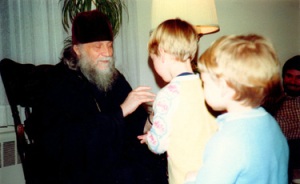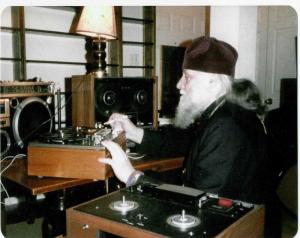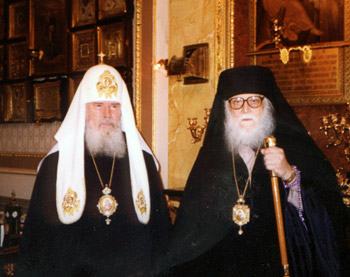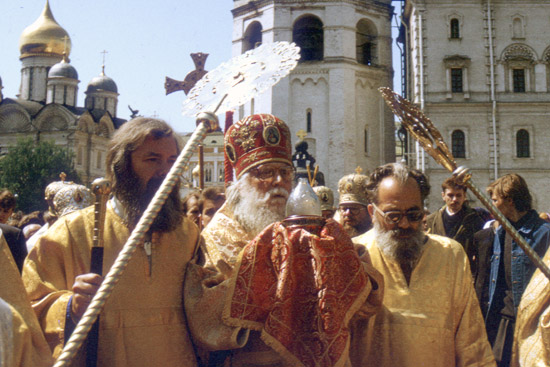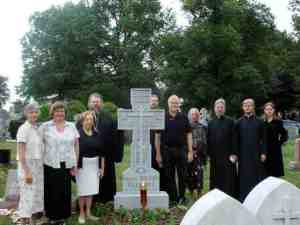As the world reels from the horrors we have read and talked about since Thursday, our only recourse remains that which is the most powerful: prayer. Across the world, peoples of all faiths are offering prayers in memory of the victims of the terrorist attacks and support for the victims and their suffering families.
God protect beautiful Paris, stalwart Beirut, and their suffering people. May Christ the Lord, who suffers with all who suffer, be with them and deliver them and His holy Mother comfort them. Memory eternal to all those poor souls who have died, and may God comfort their families in their loss!
So far, according to numerous news reports such as this, over 43 people have died in Burj al-Barajneh, Beirut in an ISIS attack against a Shia neighborhood, mosque, and market, with over 239 seriously wounded. Today Lebanon — whose government is divided between Shia, Sunni, and Christian leadership — observed a day of profound mourning.
My Muslim friends, all of whom are American citizens, took to Facebook to express their disgust, horror, and revulsion over ISIS’ attacks. One of them, a Peace Corps veteran who served in rural Kenya, is a former Resident Assistant (RA) at American University (he was my RA during my sophomore year). He wrote the following about Islam in particular. He linked to this story of a heroic Beirut citizen, Adel Termos, who lost his life defending others:
ISIS is killing our religion. It’s killing our fathers, mothers, children
Our 5 pillars
Our foundation.A man sacrifices himself and still loses his daughter. There’s a collective sigh of sorrow in the Muslim world today. I promise that while tomorrow I’ll be hopeful, for now, I’ll grieve for those lost in Russia, Lebanon, France, Yemen, Pakistan, and Bangladesh.
Peace be upon your hearts as well friends.
ISIS also claimed responsibility for the better-publicized attacks across Paris, which have left at least 129 people dead and over 350 more seriously wounded. President Obama, Prime Minister Cameron, Chancellor Merkel, and Russian President Putin all issued statements in support of the Parisian people and France.
As President Hollande’s unpopular Socialist government is likely to suffer a further decline in public support for having failed to prevent the attack, it is possible, though far from certain, that the far-right Front National party led by Marine Le Pen will win several upcoming regional elections. Ms. Le Pen has seen her popularity surge since the attacks after she made strong statements urging the “annihilation” of Islamist radicals and the deportation of such people from France. As Reuters and The Guardian reported earlier today from Paris, the Front National leader made the following comments to French reporters:
We are living the horror … yesterday evening the centre of France was struck by an exceptional barbarity. It was an escalation of Islamist terrorism and the sixth time this year that Islamists have attacked our country.
Islamist fundamentalism must be annihilated, France must ban Islamist organizations, close radical mosques and expel foreigners who preach hatred in our country as well as illegal migrants who have nothing to do here.
As this Lebanese Australian news agency reports, none of the world leaders, as of Saturday morning, had addressed the terrorist attacks in Beirut to the degree that the world was speaking about the events in Paris. God forgive us as a world, and as a society, for those in the media who perpetuate this double standard of covering the attack in Paris (where the victims were overwhelmingly European) and ignoring the earlier attack in Beirut (where the victims were overwhelmingly Arab).
French President Francois Hollande closed the French borders, declared a state of emergency, and vowed that France would issue a “merciless” response against ISIS. All major French political parties agreed to suspend their campaigns for the upcoming regional (departmental) elections, and leading mainstream French politicians including former center-right President Nicolas Sarkozy and former center-right PM Francois Fillon took to Twitter to express their support for Hollande’s decision to order the emergency decree. Sarkozy wrote emphatically that “the terrorists have declared war on France.”
Paris’ Mayor, Anne Hidalgo, wrote the following on her Facebook account at around 6:30 EST:
Liberté, Égalité, Fraternité. Ces valeurs sont la langue vivante des quartiers qui ont été touchés à Paris, hier soir. Les Parisiens sont debout, unis. Les terroristes ont voulu nous faire taire, ils n’y arriveront pas. Nous ne céderons pas. La classe politique doit être à la hauteur des valeurs de la République. Les citoyens nous demandent de ne pas les décevoir. Unité.
My translation:
Liberty, Equality, Fraternity. These values are the living language of the neighborhoods that were hit in Paris last night. The Parisians are standing united. The terrorists wanted to silence us, they will not succeed. We will not give. The political class must be equal to the values of the Republic. The citizens demand of us that we not disappoint them. Unity.
Mayor Hidalgo wrote the following in her initial reaction to the ISIS attacks:
C’est avec horreur que j’ai appris les attaques survenues dans notre ville. Face à ces inqualifiables actes de barbarie qui ont fait plusieurs dizaines de morts, Paris est touchée au coeur.
Au nom des Parisiens, je tiens à exprimer mes condoléances les plus vives et les plus attristées aux familles et aux proches des victimes. Je tiens également à saluer le courage sans faille des forces de police et des secours, qui ont immédiatement réagi avec un sens du devoir hors-pair. Paris les remercie. Je tiens enfin à remercier les marques de soutien internationales d’ores et déjà exprimées aux Parisiens, parmi lesquelles celles des maires de New York, Montréal et Madrid.
Je me suis rendue sur place rapidement et dès ce soir, les services municipaux parisiens sont pleinement mobilisés. La Mairie du 11e arrondissement accueille les blessés tandis qu’une cellule de crise est organisée à l’Hôtel de Ville.
Nous sommes debout, nous sommes unis. J’en appelle à l’unité de toutes et tous.
My translation:
It is with horror that I learned of the attacks in our city. Faced with these unspeakable barbarous acts which have caused dozens of deaths, Paris is touched to the heart.
In the name of the Parisians, I have to express my deepest and most heartfelt condolences to the families and relatives of the victims. I also have to equally salute the unwavering courage of police and rescue forces, who immediately responded with a sense of duty peerless. Paris thanks all of them. Finally, I want to thank the support of international brands already expressed to the Parisians, among which those of the mayors of New York, Montreal and Madrid.
I visited the site quickly and this tonight, Parisian municipal services are fully mobilized. The Mayor of the 11th arrondissement hosts the wounded while a crisis unit shall be held in the City Hall.
We are standing, we are united. I appeal to the unity of you all.
The Legitimist pretender to the French throne, Prince Louis Alphonse de Bourbon, Duc d’Anjou (King Louis XX to French Legitimists) offered this elegant, brief response to the horrors in Paris (I have translated from the original French here):
At the moment that the cowardice which caused this horror saddens all of Paris and France, I express my profound emotion.
My thoughts and my prayers are with the victims and their families. The dead and the injured innocents. The guardians of security and health.
Beyond the pain and indignation, facing this act of war, it is up to everyone to be responsible and confidant in the future. As in other troubled times, France will regain its peace and greatness by the union of that which has always been its strength and consistency, its values obtained from the sources of its history.
Here is a beautiful Latin Requiem sung by the Choeur des moines de l’Abbaye de Saint-Pierre de Solesmes (Choir of the Monks of the Abbey of Saint-Pierre), and here is a magnificent, moving Litany of the Saints of Paris (in French).
Given the Russian Federation’s ongoing bombing campaign along with the Syrian Army, Iraqi Kurdish paramilitary forces, and Iranian fighters — a campaign which has massively devastated the terrorists — it is unsurprising that ISIS released a new video announcing that they intend to begin attacking Russia itself. God protect Russia from these vicious barbarians. In the chilling video, which features gruesome images of executions, ISIS threatens that “blood will spill like an ocean” and refers to Russians as “kaffirs” (infidels).
Who is ultimately responsible for ISIS coming into existence? Certainly the United States did not help matters by creating a power gap in the heart of the Middle East by first backing (under Bush I and Clinton) Iraqi Baathist dictator Saddam Hussein and then (under Bush II) removing him from power, and encouraging Baathist President Assad’s removal in Syria with no real plausible moderate or democratic alternative to the secular dictator. Our arming of so-called “moderate” Syrian opposition was a colossal failure, as many of these “moderates” wound up in ISIS. Who is the closest power, ideologically speaking, to ISIS, and whose muftis and imams and princes have strong ties to leading ISIS figures?
The House of Saud — Saudi Arabia’s ruling royal dynasty. With British support, they usurped and drove from power an ancient, legitimate monarchical dynasty (the Hashemites) in the Hejaz, which became the core of Saudi Arabia. They give real, legitimate monarchies a bad name, slaughter hundreds of their own people and foreigners alike each year in trumped up trials and beheadings, and are extremely racist toward non-Arab, mostly African and South Asian migrant workers. In the wake of the recent tragic stampedes and crane collapses in Mecca, Islam’s holiest city, which left over 700 people dead, Saudi emergency workers were criticized for piling the bodies of African victims atop each other like trash.
In terms of providing fertile ideological and educational indoctrination in Salafism, the Saudi regime exports extremely hateful Wahhabi textbooks to Saudi-funded Wahhabi madrasas around the world which refer to Jews and Christians as apes and swine. They despise non-Wahhabi Muslims, especially Shias, as heretics and consider them non-Muslims. Here is a detailed Washington Post article which goes into more detail about these deplorable Saudi textbooks.
In March 2015 the blind Sheikh Abdul Aziz bin Abdullah, the Saudi Grand Mufti, whom the Saudi King directly appoints,repeatedly called for the destruction of all churches on the Arabian Peninsula, including in neighboring Kuwait. There is not a single legal church in all of Saudi Arabia, where Christians have no freedom of worship and conversion from Islam to any other religion (“apostasy”) is punishable by death.
Saudi Arabia’s current ruling elite — all of whom espouse the same radical Wahhabi sect which ISIS does — stands to benefit more than any other state from ISIS’ presence because the terrorist group’s very existence causes anxious policymakers in Washington, London, and Brussels to think “better to deal with the devil we know than the devil we don’t know”. Instead of seeking realistic alternatives to the Saudi tyranny which directly finances religious hatred and indirectly sponsors terrorism, our leaders say that we must accept the House of Saud as “at least not as bad as ISIS”.
This is unacceptable and abhorrent. It thus comes as a great disappointment, but no surprise, that the Obama administration’s State Department is about to rightfully recognize Iraqi Yazidis as victims of attempted genocide by ISIS, but not Christians.
UPDATE (10 November 2015):
Here is an excellent article in The Economist which reflects very well my present line of thinking, and here is a superb article written by Scott Atran on why and how the West fails to understand ISIS. Here is another superb article from Graeme Wood in The Atlantic on ISIS’ real ideological motivations and why the West’s failure to understand them is so dangerous.
What can we do, as a nation and as a world, to isolate, demoralize, and above all cut all flow of money to ISIS? Charles P. Piece writes the following here for Esquire:
It is long past time for the oligarchies of the Gulf states to stop paying protection to the men in the suicide belts. Their societies are stunted and parasitic. The main job of the elites there is to find enough foreign workers to ensla…er…indenture to do all the real work. The example of Qatar and the interesting business plan through which that country is building the facilities for the 2022 World Cup is instructive here. Roughly the same labor-management relationship exists for the people who clean the hotel rooms and who serve the drinks. In Qatar, for people who come from elsewhere to work, passports have been known to disappear into thin air. These are the societies that profit from terrible and tangled web of causation and violence that played out on the streets of Paris. These are the people who buy their safety with the blood of innocents far away.
If we cannot, without a shadow of a doubt, make sure and confirm that a person does not pose a threat to this country, then they shouldn’t come here. And that’s the point we’re trying to make. I don’t want this to be Republicans versus Democrats. This is Americans. This is our national security.
We can welcome refugees and ensure America’s safety and security. The U.S. will provide refuge to at least 10,000 vulnerable refugees fleeing violence in Syria over the next year, after subjecting them to rigorous screening and the highest security checks of any category of traveler we allow into our country.
Slamming the door in the face of refugees would betray our deepest values. That’s not who we are. And it’s not what we’re going to do.
We must consider that while most of the refugees coming in from Syria are sane, normal people simply seeking a new home after their lives were destroyed by horrific years of war, ISIS is also deliberately sending in some of their operatives among these refugees to in turn live among us. Besides people who are openly Muslim, this could include some ISIS operatives posing as non-Muslims. The solution is not to reject all the refugees, but to carefully screen them. We can and must be a safe country without violating the constitution. We cannot ignore the reality that the past week has seen more ISIS and Boko Haram-launched terrorist attacks in close proximity to each other than ever before. To respond with “keep the status quo” on vetting refugees when the situation is anything but the status quo reveals a tremendous dearth of leadership on the President’s part.
In recent weeks, the US, Britain and the other countries that had previously insisted on Assad’s immediate departure have been signalling he could stay on for a transition period of a few months but would eventually have to go. The Russians have seized on this as evidence that the debate about Syria is going their way.
On Sunday [Putin’s] informal conversation with U.S. President Barack Obama gripped public attention. It reportedly lasted 20 minutes, and it is still unclear what was discussed, but the mere fact that it happened was interpreted by many as a positive sign of improving relations with the West.
The next day Putin stated that Russia is ready to support the opposition in Syria in its fight with the Islamic State, basically declaring resolved one of the main issues at the core of the disagreements between Russia and Western countries blaming Putin for helping Assad fight the opposition.
“Part of the armed opposition [in Syria] contemplates starting a military operation against IS with Russia’s support, and we are ready to supply that support from the air,” Putin was cited by TASS as saying Monday. “It might be grounds for later work on resolving political issues [in Syria],” the Russian leader added.
At that same time Hollande spoke at the French parliament, both chambers of which gathered at the Palace of Versailles for the first time since 2009. Among other things he called on creating a unified coalition that could include Russia.
“[It’s necessary] to gather everyone who can fight IS into one coalition,” he said, promising to meet with both Russian and U.S. presidents in the nearest future, the RBC news agency reported.
All this led to the belief that relations between Russia and the West are finally warming up, a belief that Putin mentioned during a final press conference at the G20.
“[A year ago at the G20 summit] the relations were much more tense [than now]. One can feel it, it’s true,” he said, adding that creating a joint coalition in Syria is a necessity, and “the tragic events that followed only proved our point.”
The only question that remains unanswered at this point — and probably the only thing keeping the parties from shaking hands and officially accepting Russia into the coalition — is the fate of Assad, whom the West wants out of the picture, but whom Russian officials call the only legitimate leader in Syria.
“Until there is a compromise about Assad, Russia and the coalition of the Western countries will fight in Syria in parallel, but not in tandem,” Alexei Makarkin, deputy director of the Moscow-based Center for Political Technologies, told The Moscow Times.

